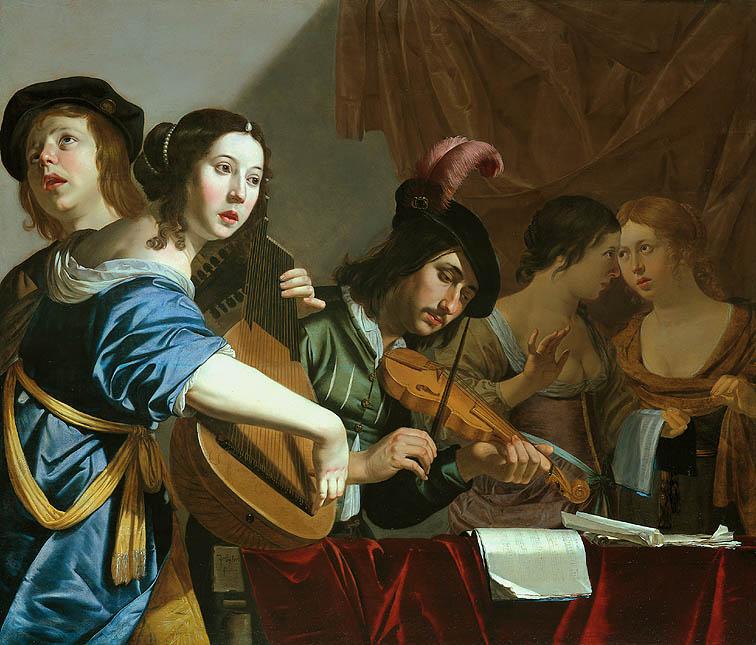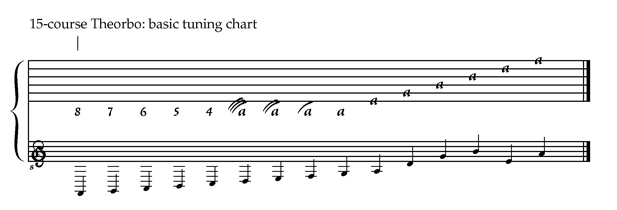|
Giuliano Paratico
Giuliano Paratico (1550–1616) was a musician living in Brescia, Northern Italy. He was a notary by profession but also an accomplished musician. His instrument of choice was the chitarrone, and according to contemporaries had a sweet voice. He published two books about his compositions, with the printer Marchetti of Brescia. Delle canzonette a tre voci of Giuliano Paratico only the second book is available, while for the first, only the Bass part is present.Canzonette a tre voci di Giuliano Paratico. Libro secondo, Pietro Maria Marchetti, Brescia 1588 He was a close friend of Angelo Grillo Spinola, prelate, poet, friend and confessor of Torquato Tasso Torquato Tasso ( , also , ; 11 March 154425 April 1595) was an Italian poet of the 16th century, known for his 1591 poem ''Gerusalemme liberata'' (Jerusalem Delivered), in which he depicts a highly imaginative version of the combats between .... The letters of Grillo make still an interesting reading today. Grillo ... [...More Info...] [...Related Items...] OR: [Wikipedia] [Google] [Baidu] |
Brescia
Brescia (, locally ; lmo, link=no, label= Lombard, Brèsa ; lat, Brixia; vec, Bressa) is a city and ''comune'' in the region of Lombardy, Northern Italy. It is situated at the foot of the Alps, a few kilometers from the lakes Garda and Iseo. With a population of more than 200,000, it is the second largest city in the administrative region and the fourth largest in northwest Italy. The urban area of Brescia extends beyond the administrative city limits and has a population of 672,822, while over 1.5 million people live in its metropolitan area. The city is the administrative capital of the Province of Brescia, one of the largest in Italy, with over 1,200,000 inhabitants. Founded over 3,200 years ago, Brescia (in antiquity Brixia) has been an important regional centre since pre-Roman times. Its old town contains the best-preserved Roman public buildings in northern Italy and numerous monuments, among these the medieval castle, the Old and New cathedral, the Renaissance ' ... [...More Info...] [...Related Items...] OR: [Wikipedia] [Google] [Baidu] |
Republic Of Venice
The Republic of Venice ( vec, Repùblega de Venèsia) or Venetian Republic ( vec, Repùblega Vèneta, links=no), traditionally known as La Serenissima ( en, Most Serene Republic of Venice, italics=yes; vec, Serenìsima Repùblega de Venèsia, links=no), was a sovereign state and Maritime republics, maritime republic in parts of present-day Italy (mainly Northern Italy, northeastern Italy) that existed for 1100 years from AD 697 until AD 1797. Centered on the Venetian Lagoon, lagoon communities of the prosperous city of Venice, it incorporated numerous Stato da Màr, overseas possessions in modern Croatia, Slovenia, Montenegro, Greece, Albania and Cyprus. The republic grew into a Economic history of Venice, trading power during the Middle Ages and strengthened this position during the Renaissance. Citizens spoke the still-surviving Venetian language, although publishing in (Florentine) Italian became the norm during the Renaissance. In its early years, it prospered on the salt ... [...More Info...] [...Related Items...] OR: [Wikipedia] [Google] [Baidu] |
Chitarrone
The theorbo is a plucked string instrument of the lute family, with an extended neck and a second pegbox. Like a lute, a theorbo has a curved-back sound box (a hollow box) with a wooden top, typically with a sound hole, and a neck extending out from the soundbox. As with the lute, the player plucks or strums the strings with one hand while "fretting" (pressing down) the strings with the other hand; pressing the strings in different places on the neck produces different pitches (notes), thus enabling the performer to play chords, basslines and melodies. It is related to the ''liuto attiorbato'', the French ', the archlute, the German baroque lute, and the '' angélique'' or ''angelica''. A theorbo differs from a regular lute in that the theorbo has a much longer neck which extends beyond the regular fingerboard/neck and a second pegbox at the end of the extended neck. (The pegboxes enable the lute to be tuned by turning the pegs to make the strings sound at higher or lower pitche ... [...More Info...] [...Related Items...] OR: [Wikipedia] [Google] [Baidu] |
Northern Italy
Northern Italy ( it, Italia settentrionale, it, Nord Italia, label=none, it, Alta Italia, label=none or just it, Nord, label=none) is a geographical and cultural region in the northern part of Italy. It consists of eight administrative regions: Aosta Valley, Piedmont, Liguria, Lombardy, Emilia-Romagna, Veneto, Friuli-Venezia Giulia and Trentino-Alto Adige. As of 2014, its population was 27,801,460. Rhaeto-Romance and Gallo-Italic languages are spoken in the region, as opposed to the Italo-Dalmatian languages spoken in the rest of Italy. The Venetian language is sometimes considered to be part of the Italo-Dalmatian languages, but some major publications such as '' Ethnologue'' (to which UNESCO refers on its page about endangered languages) and '' Glottolog'' define it as Gallo-Italic. For statistic purposes, the Istituto Nazionale di Statistica (ISTAT) uses the terms Northwest Italy and Northeast Italy for two of Italy's five statistical regions in its reporting. These same su ... [...More Info...] [...Related Items...] OR: [Wikipedia] [Google] [Baidu] |
Chitarrone
The theorbo is a plucked string instrument of the lute family, with an extended neck and a second pegbox. Like a lute, a theorbo has a curved-back sound box (a hollow box) with a wooden top, typically with a sound hole, and a neck extending out from the soundbox. As with the lute, the player plucks or strums the strings with one hand while "fretting" (pressing down) the strings with the other hand; pressing the strings in different places on the neck produces different pitches (notes), thus enabling the performer to play chords, basslines and melodies. It is related to the ''liuto attiorbato'', the French ', the archlute, the German baroque lute, and the '' angélique'' or ''angelica''. A theorbo differs from a regular lute in that the theorbo has a much longer neck which extends beyond the regular fingerboard/neck and a second pegbox at the end of the extended neck. (The pegboxes enable the lute to be tuned by turning the pegs to make the strings sound at higher or lower pitche ... [...More Info...] [...Related Items...] OR: [Wikipedia] [Google] [Baidu] |
Angelo Grillo
Dom Angelo Grillo O.S.B. (1557–1629) was an Italian early baroque poet belonging to the noble Genoese family of the Spinola. He wrote mostly religious verse under his own name, but as Livio Celiano, his pseudonym, he wrote amorous madrigal texts. Biography Born in 1557 to a wealthy Genovese family, Grillo took Benedictine orders as a teenager in 1572. He rose to be abbot of several, including Saint Paul Outside the Walls in Rome, where he was one of the founding members of the Accademia degli Umoristi. Grillo's own religious poems began appearing in anthologies in 1585, and he published his first single-authored collection of ''Rime'' in 1589. A prolific writer, he published several other collections; in 1595 his ''Pietosi affetti'', his masterwork, appeared for the first time. He reworked and expanded the collection, and it was published eleven times by its arrival at a final version, a corpus of more than two thousand poems, in 1629. He died that same year. Impact and legac ... [...More Info...] [...Related Items...] OR: [Wikipedia] [Google] [Baidu] |
Torquato Tasso
Torquato Tasso ( , also , ; 11 March 154425 April 1595) was an Italian poet of the 16th century, known for his 1591 poem ''Gerusalemme liberata'' (Jerusalem Delivered), in which he depicts a highly imaginative version of the combats between Christians and Muslims at the end of the First Crusade, during the Siege of Jerusalem (1099), Siege of Jerusalem of 1099. Tasso had mental illness and died a few days before he was to be Poet laureate, crowned on the Capitoline Hill as the king of poets by Clement VIII, Pope Clement VIII. His work was widely translated and adapted, and until the beginning of the 20th century, he remained one of the most widely read poets in Europe. Biography Early life Born in Sorrento, Torquato was the son of Bernardo Tasso, a nobleman of Bergamo and an epic and lyric poet of considerable fame in his day, and his wife Porzia de Rossi, a noblewoman born in Naples of Tuscany, Tuscan origins. His father had for many years been secretary in the service of F ... [...More Info...] [...Related Items...] OR: [Wikipedia] [Google] [Baidu] |
Italian Musicians
Italian(s) may refer to: * Anything of, from, or related to the people of Italy over the centuries ** Italians, an ethnic group or simply a citizen of the Italian Republic or Italian Kingdom ** Italian language, a Romance language *** Regional Italian, regional variants of the Italian language ** Languages of Italy, languages and dialects spoken in Italy ** Italian culture, cultural features of Italy ** Italian cuisine, traditional foods ** Folklore of Italy, the folklore and urban legends of Italy ** Mythology of Italy, traditional religion and beliefs Other uses * Italian dressing, a vinaigrette-type salad dressing or marinade * Italian or Italian-A, alternative names for the Ping-Pong virus, an extinct computer virus See also * * * Italia (other) * Italic (other) * Italo (other) * The Italian (other) * Italian people (other) Italian people may refer to: * in terms of ethnicity: all ethnic Italians, in and outside of Italy * in ... [...More Info...] [...Related Items...] OR: [Wikipedia] [Google] [Baidu] |
1550 Births
Year 155 ( CLV) was a common year starting on Tuesday (link will display the full calendar) of the Julian calendar. At the time, it was known as the Year of the Consulship of Severus and Rufinus (or, less frequently, year 908 ''Ab urbe condita''). The denomination 155 for this year has been used since the early medieval period, when the Anno Domini calendar era became the prevalent method in Europe for naming years. Births * Cao Cao, Chinese statesman and warlord (d. 220) * Dio Cassius, Roman historian (d. c. 235) * Tertullian, Roman Christian theologian (d. c. 240) * Sun Jian, Chinese general and warlord (d. 191) Deaths * Pius I, Roman bishop * Polycarp, bishop of Smyrna (b. AD 65 AD 65 ( LXV) was a common year starting on Tuesday (link will display the full calendar) of the Julian calendar. At the time, it was known as the Year of the Consulship of Nerva and Vestinus (or, less frequently, year 818 ''Ab urbe condita''). ...) References {{DEFAULTSORT:155 [...More Info...] [...Related Items...] OR: [Wikipedia] [Google] [Baidu] |



